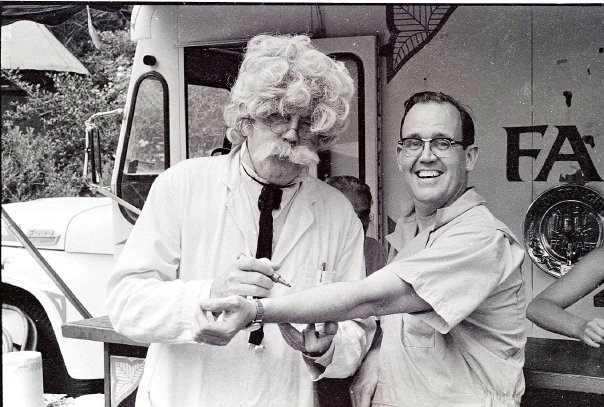Sharon Astyk, a rural farmer who writes often about preparing for what she believes is a coming time of severe economic hardship related to peak oil and climate change, says city people who believe escaping to the country is the best option for them ought to seriously reconsider. She makes the case for why cities might be better places for some people to ride out the transition, and then turns to a discussion about why country life can be harder than you might think. Excerpt:
1. Fewer jobs, more poverty, at least at first. While in the longer term, rural areas may do better, in early transitional periods, the odds are that they will do worse, because they have fewer jobs to begin with. In an economic crisis, many people in rural areas become very poor and areas become severely depressed. If you are thinking that we will have an instant apocalypse where everyone moves out to the countryside looking for food, you probably should give some thought to a slow grind, where there’s plenty of food but no money to buy it.
2. Shortages of goods and higher prices for things not made locally. Many rural areas have few stores and are at thee nd of shipping lines. If gas gets expensive or resources get constrained, outer perimeter stores will be serviced last, and at higher cost. Few rural dwellers make everything they use or even grow all their own food – it may cost you a lot more to get things and you may be the first to see shortages.
3. Tight knit and conservative communities can be alienating to people who are different or simply outsiders. While I know, for example, many gay and lesbian people living in rural areas, I know others who were driven out by small mindedness and hostility. Plenty of people move out our way and complain that if you aren’t related to someone, there’s no social life, and it is hard to integrate. The reality is you may be an outsider for a long time.
4. It can be far away from family and friends if they are tied to the city. Life in the country also requires that you live differently – fewer formal activities for the kids, more just playing, maybe multiple sources of part time income instead of one steady job.
5. Lack of services – as economic consequences get greater, small towns with small tax bases either need to raise taxes (a tough sell) or they need to cut services. When oil prices spiked in 2008 schools cut back to 4 days a week, got rid of staff, plowing was cut back, garbage collection abandoned and town courts closed. The consequences are worse in the city when services do shut down because of population density, but cities are less likely to get hit as early.
Read the whole thing — lots to chew on there.

